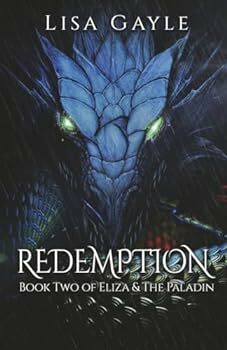

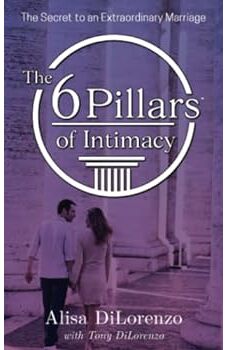
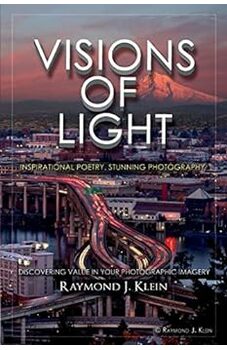
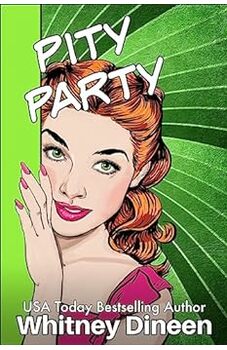

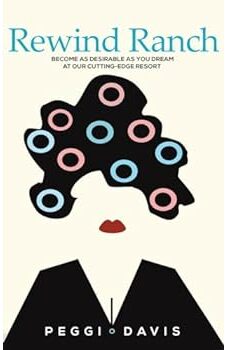

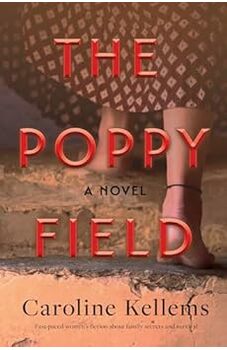
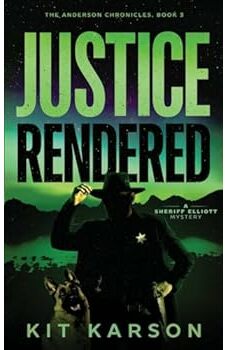
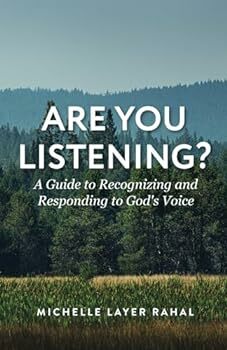
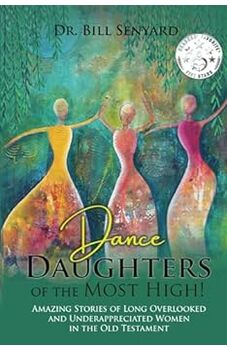
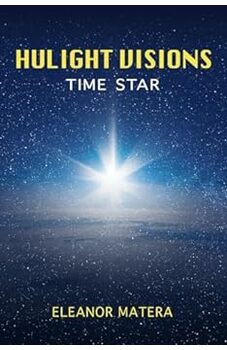
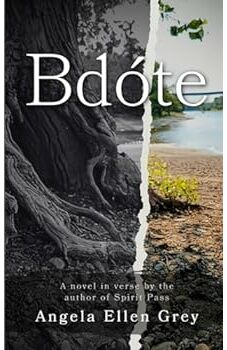
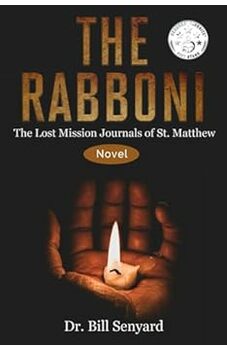
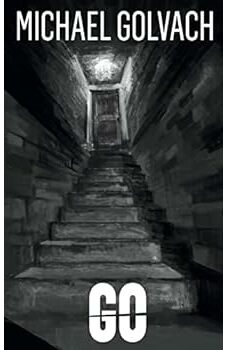
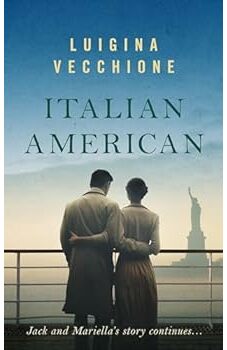
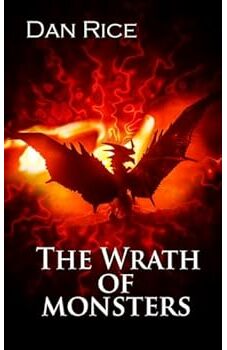
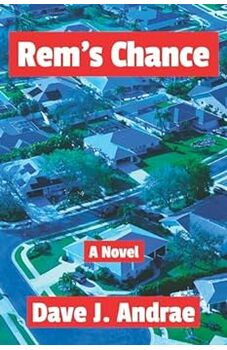

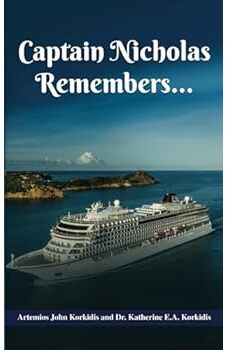

 This author participates in the Readers' Favorite Free Book Program, which is open to all readers and is completely free. The author will provide you with a free copy of their book in exchange for an honest review. You and the author will discuss what sites you will post your review to and what kind of copy of the book you would like to receive (eBook, PDF, Word, paperback, etc.). To begin, click the purple email icon to send this author a private email.
This author participates in the Readers' Favorite Free Book Program, which is open to all readers and is completely free. The author will provide you with a free copy of their book in exchange for an honest review. You and the author will discuss what sites you will post your review to and what kind of copy of the book you would like to receive (eBook, PDF, Word, paperback, etc.). To begin, click the purple email icon to send this author a private email.
![]() This author participates in the Readers' Favorite Book Review Exchange Program, which is open to all authors and is completely free. Simply put, you agree to provide an honest review an author's book in exchange for the author doing the same for you. What sites your reviews are posted on (B&N, Amazon, etc.) and whether you send digital (eBook, PDF, Word, etc.) or hard copies of your books to each other for review is up to you. To begin, click the purple email icon to send this author a private email, and be sure to describe your book or include a link to your Readers' Favorite review page or Amazon page.
This author participates in the Readers' Favorite Book Review Exchange Program, which is open to all authors and is completely free. Simply put, you agree to provide an honest review an author's book in exchange for the author doing the same for you. What sites your reviews are posted on (B&N, Amazon, etc.) and whether you send digital (eBook, PDF, Word, etc.) or hard copies of your books to each other for review is up to you. To begin, click the purple email icon to send this author a private email, and be sure to describe your book or include a link to your Readers' Favorite review page or Amazon page.
![]() This author participates in the Readers' Favorite Book Donation Program, which was created to help nonprofit and charitable organizations (schools, libraries, convalescent homes, soldier donation programs, etc.) by providing them with free books and to help authors garner more exposure for their work. This author is willing to donate free copies of their book in exchange for reviews (if circumstances allow) and the knowledge that their book is being read and enjoyed. To begin, click the purple email icon to send this author a private email. Be sure to tell the author who you are, what organization you are with, how many books you need, how they will be used, and the number of reviews, if any, you would be able to provide.
This author participates in the Readers' Favorite Book Donation Program, which was created to help nonprofit and charitable organizations (schools, libraries, convalescent homes, soldier donation programs, etc.) by providing them with free books and to help authors garner more exposure for their work. This author is willing to donate free copies of their book in exchange for reviews (if circumstances allow) and the knowledge that their book is being read and enjoyed. To begin, click the purple email icon to send this author a private email. Be sure to tell the author who you are, what organization you are with, how many books you need, how they will be used, and the number of reviews, if any, you would be able to provide.
Reviewed by Grace Masso for Readers' Favorite
At the Stroke of Nine O’'Clock by Jane Davis is a pulse-pounding historical novel that follows three women against the backdrop of post-war London as they struggle to create a life for themselves. It is set in 1949 and introduces readers to Caroline Wilby, a working-class girl who is willing to grab any opportunity to make money to support her family; Ursula Delancy, a silver screen star who has just returned from the USA after a failed romantic adventure; and Patrice Hawtree, a wealthy, beautiful, and childless woman trapped in an unhappy marriage and dealing with an addicted husband. These women will eventually meet at a local club, thanks to the sensational Ruth Ellis case — Ruth Ellis is sentenced to death by hanging for the murder of her abusive boyfriend. This time around, Caroline, Ursula, and Patrice will not watch in silence.
This is a well-crafted story that brilliantly depicts the place of women in post-war England and the injustices they suffered. Readers are introduced to compelling women who struggle to survive in a world dominated by men. The novel is cleverly plotted and the lives of the four women are written in a suspenseful manner, with strong themes coming out clearly as one follows the characters — women’s rights, capital punishment, marriage, and social injustice. The characters are richly developed, each of them a reflection of the world they are born into; each of them has experienced the pain of broken promises and lost dreams. The setting in post-war London is well-written, with historical and cultural elements skillfully articulated. At the Stroke of Nine O'Clock features a real-life character — Ruth Ellis — and a historical world that readers will be excited to explore.
At the Stroke of Nine O'Clock by Jane Davis is a thoughtful historical novel centered around three fictional women whose lives are told parallel to Ruth Ellis’s, the last woman to be hanged in Britain. To support her family, Caroline Wilby begins to work as a hostess at a club in Knightsbridge. The 1950s in London is a complex environment for Caroline who is inexperienced and has just left the security of home. Her path crosses with Ursula Delancy, an infamous, brilliant actress whose life is a constant target for London’s press. Ursula’s earlier separation from her husband and her affair with a married man mar her remarkable career achievements. Caroline also meets Patrice Hawtree, a duchess whose position does not protect her from her husband’s ruinous financial errors.
I loved that real events surround the lives of the three fictional characters, making the story even more exciting. Ruth Ellis, who is a real historical character, appears in the book. Her life is told side by side to the lives of the other women. Specific themes stand out and they bring together the stories of the main characters. Prejudice against women is a constant theme. Patrice’s financial standing is compromised by her husband’s authority to act in her name. The men who make decisions similar to Ursula’s during the era are not subjected to the same level of attention and shame that Ursula suffers in society. Caroline and Ruth suffer at the hands of a brutal man and Ruth, ultimately, pays a deadly price. At the Stroke of Nine O'Clock by Jane Davis is an impressive novel that discusses significant themes through the lives of its carefully composed characters.
At the Stroke of Nine O’Clock by Jane Davis is a gripping historical novel set in London from 1949 through the 50s and inspired by the Ruth Ellis — real-life — murder case, which is part of the exciting plot. This story follows the path of three women. Caroline Wilby is a working-class girl who will grab any opportunity to make more money to support her family. Ursula Delancy’s first love has been the theatre, even though she has secured an initial three-film contract. She is a silver screen star. Eloping with a man to the US becomes an affair that almost destroys her career and that will constitute a scandal that the paparazzi will just be eager to feed on. She might even lose her daughter. Patrice Hawtree is a duchess who is trapped in an unsavory marriage with a husband whose gambling habits can destroy her fortune. These three women have nothing in common when they meet. But the sentence to death by hanging of Ruth Ellis for killing her abusive lover unites them and gives them a common purpose. Will they watch quietly as another woman suffers the indignity of society?
At the Stroke of Nine O’Clock is a mesmerizing, character-driven story that opens with a murder. That is the first thing that caught my attention. Then the author introduces characters that are not just sophisticated but elaborately written. While this is a novel with a strong appeal to fans of history, it has great merit when it comes to characterization and thematic development, exhibiting unique elements with strong female characters as the author writes about the social and human conditions of women in the post-WWII era, exploring the social injustices and inequalities they suffered. The descriptions are terrific, incorporating details that give more life to both the setting and the characters. The traits of historical London in the 1950s are brilliantly written. Jane Davis is a great storyteller, her work is masterful, with gradual acceleration and intensification of conflict that held my attention from the very first page.
London, 1949. Four women with apparently nothing in common have more in common than at first appears. Caroline Wilby has no other option than to leave home and earn money for her mother and young sister. Ursula Delancy is a star of stage and screen and prey to journalists for her scandalous private life. Patrice Hawtree, a rich heiress, was a well-known debutante before marrying a man who relies on her money for his gambling and drinking. Determined to prevent any scandal, Patrice plays along. Fourth and final is the most the most notorious woman of the post-war years: Ruth Ellis, the last woman to be executed in Britain.
This novel presents an evocative portrait of the age – its politics, the post-war privations of rationing, and women who are supposed to put up and shut up as they raise the children forced upon them and deal with the consequences.
This is the first time I have come across this author, and what a revelation! She writes stunning prose that keeps the pages turning. She understands her women, their faults, and the way they pull together when the chips are down. Some succeed, but too many, like poor Ruth Ellis, fall between the cracks. In this telling, the reader feels that not only should Ruth not have been hanged, but she should never have been found guilty. Highly recommended.
I’m a huge fan of Jane Davis’s writing and never know what to expect. This book was a real surprise but in the best possible sense. Set against a post-war environment, there is a sense of society shifting towards the world we know today. Capital punishment is still used although there are many campaigning against it.
The lives of three different women – a working-class girl who’s a nightclub hostess, a glamorous actress beset by scandals, and a member of the nobility whose status is under threat – come together in a shared cause. The case of Ruth Ellis, the last woman hanged in Britain.
The setting, characterisation and writing are all flawless, but it’s the theme which strikes me the most. All these women are trying to make their way in a world where the odds are stacked against them. Their forced dependence on men makes them vulnerable to damage, whether that is physical, financial or reputational. The sense of injustice reverberates throughout the book, tinged with even greater pathos when we are privy to the thoughts of the condemned woman.
At the Stroke of NineO’lock is a story of three women told in the shadow of Ruth Ellis, the last woman to be hanged in Britain. 1950s London has always fascinated me, but this novel does not sugar-coat the lives of women living under male oppression and the double standards of the era.
Caroline is a working-class girl from Felixstowe, sent to the city to earn money to support the family left behind. As she struggles to make ends meet, let alone have any left over for her mother and sister, Caroline begins to work as a hostess in a Knightsbridge club frequented by the rich and powerful.
One of the members is Patrice, a duchess in an unhappy marriage. Her husband is responsible for a financial scandal, throwing them both to the fringes of society. Frustrated by her inability to pursue political causes on her own, the duchess wields her power via journalists and other important men at the club. Both she and her husband are active opposers of the death penalty, but the earl also hides a destructive secret, which has fatal consequences.
I didn't so much read as consume this book. I'm not a fan of either historical fiction or of true crime, and the period of history this novel covers is one I have very little interest in, but since I have read several Jane Davis novels, I pre-ordered solely on the strength of her name, without paying much attention to the blurb. I have long felt that Ruth Ellis got a terribly raw deal, and that her execution is a stain on the conscience of this nation, and as Ruth's story runs alongside the narrative of the three women whose lives collide so powerfully, this stain is always at the forefront of the novel. But it's actually a very hope-filled novel, and one which shows the power of collective action, on a large and a small scale, as well as the inequalities and horrors of a society that discriminated so pervasively against women of all classes.
As the quote on the front of the book says: "You don't read a Jane Davis book -- you inhabit it.' Having also read Smash All The Windows -- I couldn't agree more. Davis is a master of character study who places you right there in the moment, effortlessly triggering all five senses thanks to her attention to such well-researched detail, eloquent prose and rich observation. I hankered to return to the book between each pause and as I picked it up again prepared with anticipation for my deep-dive back into 1950s England where I walked, stalked and sat with a range intriguing characters - from silver screen actresses, to night club hostesses and their bosses, to landed gentry (and their journalist contacts) - in smokey London drinking clubs, country piles, theatre land, and grey streets of post-war London. The backdrop of Ruth Ellis's story, and our occasional visits to her in her cell as she awaits the outcome of her trial, are equally halting and haunting. If you wish to step back and become a part of 1950s London and experience firsthand what it was like to be a woman at that time, this is your book. A perfect study. It is long. Go with it. Here and there a thread was lost - most likely down to my inability to find time to read as often as I'd like - but it didn't matter. Highly recommended.
Read a book by Jane Davis: These Fragile Things.
Think: Amazing. Riveting. So well written. Doesn't get any better than this.
Read another book by Jane Davis: A Funeral for an Owl.
Think: Complex. Amazing characterizations. So well written. Doesn't get better than this.
When you've read all of her books and think Davis can't possibly outdo herself, she writes a new book.
And it's even better. How does she do it?
The magic of Davis' writing is hard to define. It's not just in what she says. The power comes from what she doesn't say, but hints at. She gives the reader enough that the "missing bits" serve to strengthen the characters and plot in the reader's mind.
The quote on the cover sums it up well.
Brilliant characters. I could not wait to read this book every night. Jane does excellent research. Educational into the sad lives of so many women and socialites.
I admit, I’m a Jane Davis fan. Having read several of her previous novels, I can’t help but be… she’s that good a writer.
One of the things I find most appealing about her body of work is the sheer scope of stories she decides to tell, from the sharp contemporary drama of SMASH ALL THE WINDOWS, to her expertly crafted historical novel, I STOPPED TIME, with a wide range of other eclectic, engaging stories in the mix. As one who reads prodigiously, I am always delighted to find an author whose talent lies not only in her particular style of writing, but the matters she chooses to discuss. Davis’s choices are always provocative and compelling.
AT THE STROKE OF NINE O’CLOCK travels once more into historical territory, following the paths of three very different women whose lives intersect at a particularly fraught moment in time—post-war London—where they each tangentially connect to a very real-life character, the infamous Ruth Ellis, whose imminent hanging death for the murder of a lover roiled the headlines of the day.
I admit, I’m a Jane Davis fan. Having read several of her previous novels, I can’t help but be… she’s that good a writer.
One of the things I find most appealing about her body of work is the sheer scope of stories she decides to tell, from the sharp contemporary drama of SMASH ALL THE WINDOWS, to her expertly crafted historical novel, I STOPPED TIME, with a wide range of other eclectic, engaging stories in the mix. As one who reads prodigiously, I am always delighted to find an author whose talent lies not only in her particular style of writing, but the matters she chooses to discuss. Davis’s choices are always provocative and compelling.
AT THE STROKE OF NINE O’CLOCK travels once more into historical territory, following the paths of three very different women whose lives intersect at a particularly fraught moment in time—post-war London—where they each tangentially connect to a very real-life character, the infamous Ruth Ellis, whose imminent hanging death for the murder of a lover roiled the headlines of the day.
Before we arrive at that incendiary moment, however, we meet each of the main characters in their very specific and individual lives: popular screen star, Ursula Delancy, who finds the shattering of her personal life leading her back to London from America; Caroline Wilby, a poor, working-class girl moved to the big city to make money to send home, and Patrice Hawtree, a wealthy patrician whose disintegrating marriage compels her nightly attendance at the local club, where all three women ultimately connect.
As with all Davis’s novels, the setting and characters are richly drawn, with a wealth of detail and selective description that paints the picture, giving us the full range of visual, sensual, and emotional palates. Political issues of the day come into play—the death penalty, women’s rights, the state of marriage—allowing us a glimpse into the attitudes and proclivities of the time. The unique narratives of not only all three women, but the notorious Ellis, are brought to life in such ways that we feel as if we know them, understand their impulses and longings, their flaws and foibles, wins and losses, keeping us immersed in their unfolding dramas.
Ultimately, it’s a story that will both illuminate a reader to the time and place, and engage their senses in a propulsive, emotional narrative that wraps real events in the swirling lives of three expertly drawn fictional characters.
A great read.
“You don’t read a Jane Davis book - you inhabit it”
These are someone else’s words, but they are so true. “At The Stroke of Nine O’clock” is fantastic. Jane Davis is an extremely talented writer, and this may be her best so far.
Long after finishing this book, I’m still immersed .... thinking about the women and their journeys to the final point in the story when Ruth Ellis is hanged, the social mores of the fifties, the unfairness of it all. Fifty years on from now, how will our social “imperfections” be judged.
I can recommend this novel on so many levels. It is a literary masterpiece. As a story, I felt drawn to the women, not as a spectator, but rather like a confidante; as a commentary on the times, I was indignant and sad; as a study of the death penalty I was encouraged to do more research.
This book could easily become part of a senior school literature curriculum. (Or enjoyed by a book club.) It is beautifully written, clever, accessible, and it is provocative. I cannot praise the writer enough. This is easily the best of the many books I’ve read this year.
If you’re not already a fan of Jane Davis you will be after reading this or any of her other books. This one features the intersecting lives of three women who are drawn together by circumstance and create lives through each other that they could not have built alone. Characters are fully developed, scenes draw the reader in, the plot keeps you eager to find out what happens next. Read it!
At the Stroke of Nine o’Clock is my favourite Jane Davis novel to date. I loved it. As always with this author, all details are impeccably researched, and the sense of period – the fifties in drab-but-changing Britain – is wonderfully portrayed. The three main characters feel real and authentic and I think many readers will identify with the traumas they have suffered at the hands of the men in their lives. They feel as trapped as Ruth Ellis, though one would like to think that, unlike her, their ends will be far more fulfilled and happy.
Jane Davis is a wonderful writer. One feels that every word, every comma, every idea has been weighed up, played with and considered. This is a fascinating novel which has been expertly crafted. I heartily recommend it.
I've enjoyed all of Jane Davis's books, each of which is different but all of them are absolutely brilliant. These are stories to get lost in.
In At the Stroke of Nine o'clock we are transported to the 1950s where we meet three women. We watch from the side-lines to witness the sexism that these women faced, and we watch in horror as their lives converge to the hanging of Ruth Ellis, the last woman hanged in the UK.
An absorbing read that should not be missed.
One person found this helpful
Another triumph from indie author Jane Davis in this gloriously gritty novel that engages head-on with a post-war London struggling to re-boot itself and wider society, amid ongoing privations. Against this authentic backdrop, the dawning realisation that Britain needed to change and to challenge former ingrained inequalities (particularly the structural disadvantage of women) is deftly explored by the author, through the lived experiences of three fictional women in the 1950s. Moreover the reader discovers that Caroline, Ursula and Patrice are each held hostage by their very different respective circumstances and perceptions of duty to family (parents, children, husband). Such traditional values are also cleverly juxtaposed with the tragic real-life story of Ruth Ellis, the last woman to be hanged in the UK. The sensationalised accounts of her crime carried in the press at the time (Ellis shot her lover, killing him) succeeded in vilifying Ellis, but drew a veil over the scandalous and violent behaviour of the ‘innocent’ male victim.
The format of the book reflects multiple points of view and rotates between the key characters’ perspectives. Indeed, it sounds like the start of a joke, ‘the hostess, the actress and the duchess’, but despite the disparity in their social positions, their common experience of abuse (financial, emotional and physical) at the hands of men, is something of a leveller. But for quirks of chance, all three might not be so far removed from the fate awaiting Ruth Ellis, yet they are drawn inexorably together, bonded by a shared sense of being social misfits. The intertwining of their journeys also offers touching examples of support, without judgement.
Far from being a tale of ‘doom and gloom’, the writing is sumptuous and though perhaps not intended as a feminist commentary on the period, the author has provided the reader with a genuine depiction of a society in transition and three strong and courageous female characters equal to their time.
Indeed, time, as measured for the nation by the iconic notes of ‘Big Ben’, provides a wonderful symmetry to this book. From August 1949, when the bongs failed to appear on cue, to July 1955 when sections of London held their collective breath in anticipation of the nine o’clock salvo, the author locates each of the women and enables the reader to follow their discrete but convergent journeys. It is true there are no male role models to speak of, which perhaps begs the question whether the period also presided over the demise of ‘gentlemanly’ conduct, or leastways diminished capacity to do the ‘right’ thing? But, the dilemmas the book exposes and the moral conundrums posed make for a fascinating and stimulating read, irrespective of the reader’s gender.
⭐⭐⭐⭐⭐
I have to say that although I haven’t read all of Davis’ books (I do intend to correct this grave omission, however), this feels like the most ambitious of all that I have read. On the one hand, we have three very different women. We have Caroline Whitby, a country girl sent by her family to London to earn money to keep them alive. Then there is Ursula Delancy, an actress of the stage and screen whose name is in the papers for all the wrong reasons (and some of the right ones). Finally, Davis gives us Patrice Hawtree, the duchess in the loveless, childless marriage, whose husband is a danger to her home and ancestry. To top this off, we have Ruth Ellis and her story. That’s four women, which seems like quite a whole lot, and it might feel like Ruth’s story is unnecessary. However, I believe that Davis couldn’t resist including her, because as it says in the blurb for this book, regarding her interest in Ruth Ellis, “I know how certain facts can be presented in such a way that there is no way to defend yourself. Not without hurting those you love.” What brings this all together is how Davis applies this to all three of her fictional women in her story.
I should also admit that there was a point while reading this that I thought that maybe Davis had bitten off more than she could chew. However, with a bit of patience, what you’ll find here is an intricate jigsaw puzzle, of the kind that is the most challenging, where you have to look at each piece very carefully before you can figure out where it falls into place. However, by the time you get to the point where the lives of these three women intersect with Ruth Ellis, you’ll see the whole picture, in all its vibrant colors. Of course, more parts to the puzzle are introduced with bits of Ruth’s story from the beginning of the book, which Davis scatters between the stories of these three women (plus one man, a journalist, who is necessary to the story, but not a romantic interest for any of them, thank heavens). This is why I say you need a bit of patience here, because to begin with, you might not understand the connections. Despite this, it is well worth the wait, because that’s where you’ll see Davis’ true artistry in storytelling.
By the time all the bits of picture were fitting together, that’s when I realized just how complex each of these characters actually were. That doesn’t mean they seemed overly simple before this, but that the convergence of these women, and their stories gave Davis a way to give them yet another dimension to their characters – that being the idea that no matter how much they’d experienced difficulties, or even if those troubles might feel more or less significant, depending on their stations in life, these women knew that when they saw something that was an injustice, that they couldn’t stand by without trying to rectify the matter, even if that injustice didn’t directly impact their own lives. If there were things about any of these women that we didn’t care for from their own actions, their unity during a time of crisis for someone totally unknown to them, made up for any past failures or character faults.
It occurred to me that this is why this book feels so very timely, and is also evergreen. The past years have seen the rise of the #MeToo movement, and more recently, the racial protests in the US, not to mention how people from countries across the world (for the most part) are stepping up during this pandemic. With this novel, Davis seems to want to give us hope that we can come together and help one another, even if it comes at our own personal risk. Furthermore, the delay in Big Ben’s chime seems to be a metaphor that tells us that justice can and will come, even if unseen forces try to delay its arrival. While I wasn’t sure if this would be my final rating while I was reading this novel, I think that after finishing this book, and having thought about it, I can’t give this book less than a full five stars.
I plunged head first into a fascinating era of our history reading this book. Like all of Jane Davis's books, I felt that the detail and accuracy had been carefully researched, but also the blending three sympathetic fictional female characters into a notorious true life story was very clever. I got slightly muddled following the complex manoeuvres of the Duchess trying to keep her and the Duke's name clean after financial misconduct, this is the only reason for not giving 5 stars. What I admire so much about Jane Davis's writing is that all her books are so unique, not following any particular genre, but all crafted so well and all keep me reading voraciously until the end. Looking forward to her next release.
Really interesting entwined storyline, so refreshing to read a book that’s completely different. This book plunges you straight into post war London and immerses you into the lives of three altogether different women. Very well researched and written, hard to put down but very thought provoking (hence would be great for bookclubs to debate). I have a feeling that Caroline, Ursula & Patrice will be in my mind for quite a while.
I really enjoyed reading this book set in the era I was born but too young to remember. Jane conjures up the settings and characters in a masterly way which is so easy to visualise and believe. A time within the living memory of many people but so removed from today is brought to us in this book. The death penalty is a tough subject to tackle and being witness to Ruth Ellis's last days is particularly thought provoking and moved me almost to tears. Attitudes to women then are also an integral part of this book, and make one appreciate how much has changed. I would heartily recommend not only this book but all Jane's past books.
I really enjoyed this book - as I've enjoyed previous novels by this author. The period details and dialogue created an immersive atmosphere and the characters were vivid and compelling. I loved the way that real-life events and people are interwoven with fiction.
Another winner! Highly recommended for an enjoyable and thought-provoking read.
Like the author's previous books the characters here are full, engaging and work together beautifully . The settings and storytelling draws you into this difficult situation, highlighting so many issues that cut across society even now. Another excellent read
Wow! A great read, my favourite book of the summer. Well researched, I loved the characters, especially Patrice. A total page-turner.
Three women defy others’ expectations of them and have to pay the price society demands. We walk in their shoes and know the pain beneath the posing. I love the way actress Ursula flaunts her bad reputation, turning it to her advantage when she needs to distract the press from what she really cares about – her children. The passages featuring the two children moved me to tears – I believed every word and needed the reminder that good things happen. Not always despite the tragedies in life but sometimes because of them, inextricably entwined.
Jane Davis portrays the gut-wrenching unfairness of life with ironies and bad timing worthy of Thomas Hardy but there is always the possibility of redemption for these people we come to care so much about. I am still wondering what I would do if I were any of her three main characters as each one is dragged into problems of others’ making. These 1950s women live in a man’s world and the period background is so authentic you are shocked when Big Ben doesn’t bong at nine-o’clock.
The historical event impacting on all three women is the sentence to death by hanging of Ruth Ellis, murderess. I was born in 1955 and knew the name and the fact but nothing more. Although Ruth features only briefly, details of her last days in prison create tension, punctuating events in the lives of the fictional women. For all four, I wonder how we dare judge them at all. Yet judge and jury not only condemned Ruth Ellis to death by hanging but a recent appeal found that the ruling was ‘just’ by the laws of the time. The difference between legal justice, especially for women, and what’s right morally hit me hard, reading ‘On the Stroke of Nine o’Clock’ and I’m still thinking about it.
Each Jane Davis novel is different but all have her hallmark qualities: characters drawn from life; telling details; and written so well that I re-read some sentences for pleasure. Her latest book was well worth the wait and might even be my favourite – until her next one.
There are, oddly, three protagonists in this book, three disparate women with different background and lifestyles. Each is facing a crisis in her life. All three are distinct characters with their own voices.
Caroline is a naïve seventeen-year-old, fresh off the bus from Sussex and alone in London. With the death of her father, her mother is counting on her to make a living and send money home. She manages to get a job as a hostess in a gentlemen’s club, which entails persuading the members to buy food and drinks – lots of drinks. Anything beyond that is entirely up to her, but the owner wants a cut.
Ursula is a popular movie star returned to London after a time in Hollywood. She has left her husband and is pregnant and about to marry the father, a Hollywood director, when she learns he has spent the night with his ex-wife who delights in telling her that she too is pregnant. Alone and pursued by a gossip-hungry press, Ursula struggles to form a relationship with the daughter, ten years old, whom she left behind in order to pursue her career.
Patrice is a socialite, married to a duke who is both difficult and a drunk. It is a marriage of money and title. The duke is also a gambler and makes fraudulent use of Patrice’s signature, putting at risk her beloved ancestral home and her entire future.
By accident the three come together at the club where Caroline works and form a compassionate friendship. As they struggle with their own crises, they become involved in the real life story of Ruth Ellis, who is sentenced to death for the slaying of a brutal boyfriend. There are contemporary issues here relating to the death penalty, women’s rights, spousal abuse, and a harassing press, and we can see that the answer to the problems these characters encountered are still eluding us today.
The author is really good at creating and developing characters. With their individual personalities, even the lesser characters refuse to sit in the background. From Caroline in the smoky gentleman’s club, to the glamorous actress, to the wealthy duchess, and the people they interact with, we see life in the post-war years on many levels. I thoroughly enjoyed this well-told story of the struggles of women to survive, to surmount the obstacles placed in their path, of endurance, and of friendship between women who on the face of it have nothing in common, but who come together to help each other and to try to save another who none of them know.
Excellent read. Highly recommended.
I realise it is a cliché but I’m going to write it anyway. I think this book would make a good movie.
In the dark underworld of postwar London four women are trying to make their way in the world. But it doesn’t matter whether you’re a Duchess, a film star or a nightclub hostess, you aren’t in control of your own life. It was all black and white in 1950. Before the reform of an archaic legal system, before second-wave feminism, before the #MeToo movement, the idea that the future is yours to make as a woman is an illusion.
The women’s lives collide in a club, and Jane Davis captures the atmosphere brilliantly. As she writes in a note:. “Post-war London’s afternoon drinking clubs were key to 1950’ s culture. Few other places offered the opportunity for ex-servicemen and bored businessmen to rub shoulders with a roll-call of police, royalty, politicians, intellectuals, journalists, celebrities, high-ranking homosexuals and gangsters.” It provides the landscape and the cast list for a novel that unfolds like a movie.
As the story opens, a woman is about to be hanged for killing her abusive boyfriend. Jane Davis, without re-telling the story of Ruth Ellis, illuminates the context and puts the circumstances in front of the reader, who becomes judge and jury. Three other women have also been affected by the same moral standards, the same presumptions of male superiority, the same culture of abuse that a jaded post-war society turns a blind eye to. Their lives are unravelling. The novel also addresses the role the news media, skilled in wartime propaganda, plays in creating public opinion. A few choice words, a carefully chosen photograph. Madonna or Medea? A journalist has already decided.
Jane David creates original, sympathetic characters whose lives you want to follow from the opening of the book and she weaves their stories together until the point where they converge. Women support other women. You can rely on your friends. This is a compelling read.
Caroline, Ursula and Patrice – three very different women, but whose lives in the 1950s are deftly and meticulously brought to life by the author in a way that you live through their eyes. And I'm not using this expression in a superficial way. Jane Davis has the gift of seeing inside people, their motivations, their fears as well as their everyday pressures without being sentimental or melodramatic. She then goes on to weave additional complexities into her characters, even the secondary ones. And did I mention the research? You are there in clubland, Hollywood, the ancient estate, the council estate, the lawyer's office, Holloway prison.
You are in the sure hands of a mistress of the written word.
Ruth Ellis was the last woman legally executed in the UK – a highly emotive subject still, but was her dilemma a reflection of women's 'estate' in the 1950s? Jane Davis's story may help you decide. Read it and you will want to re-read it as soon as you have finished it.
I had to give this book five stars because it is even better than Jane's previous novel, and I gave that one five stars too.
As ever Jane captures the mood and physicality of the period she is writing about with remarkable clarity. It is the time of Ruth Ellis and the last ever hanging of a woman in this country. Three very different women have to struggle against the expectations, constraints and judgements of society.
This is a great description of our society seventy years ago and helps explain some of the problems and hang ups that we still face today.
I so want to say more but I am determined not to give you any plot spoilers. But I will confirm that the pressures of gender, class and privilege, or otherwise, are apparent throughout the narrative
At the Stroke of Nine O’clock opens a window onto 1950s London: a world of smog, sex and sleazy Sunday papers, of racing car drivers and louche lounge lizards. Jane Davis’s powerful latest novel follows three women – a duchess, a movie star and a working-class girl trying to make her own way. in the big city Their lives collide and they are brought together during the trial and sentencing of Ruth Ellis, the last woman to be hanged in Britain. Insightful, incisive and beautifully crafted prose perfectly captures the spirit of an age, the transition between pre- and post-war Britain and the changing role of women. This powerful book is insightful and always surprising, it transports us to a world where women are lied to and exploited by men in so many different ways – and where these three very different women search for ways to fight back.
I was given an ARC of the book to review. The views here are entirely mine.
Real and convincing characters, with an exceptionally convincing sense of place and time – this novel brings friendship, social history and class divide into sharp focus.
I loved the attention to the small details (classic Jane Davis); such as when Caroline puts on a dress belonging to a previous hostess, it smells of her perfume. Gave me a real sense of time and place.
Riveting, with a slow burn, and (this is excellent) a low level of dread / anticipation as I waited for something terrible to happen to Whitlocke and for a death. I was surprised by the outcome (another good thing)
I could say more - but I don't want to risk spoilers :-)
I was only a child when Ruth Ellis was hanged and this wonderful book, through it's brilliant story telling, explained the world Ruth inhabited, the wrongs women of all classes suffered, and how unjust her sentence was. Great read. I even went to bed early most nights to get back to it!!
Read a book by Jane Davis: These Fragile Things.
Think: Amazing. Riveting. So well written. Doesn't get any better than this.
Read another book by Jane Davis: A Funeral for an Owl.
Think: Complex. Amazing characterizations. So well written. Doesn't get better than this.
When you've read all of her books and think Davis can't possibly outdo herself, she writes a new book.
And it's even better. How does she do it?
The magic of Davis' writing is hard to define. It's not just in what she says. The power comes from what she doesn't say, but hints at. She gives the reader enough that the "missing bits" serve to strengthen the characters and plot in the reader's mind.
The quote on the cover sums it up well.
The best books offer a solid glimpse into worlds unknown, and this one delivers beautifully. The culture of London's private clubs alone is enough, but Davis also allows us to ponder life as a duchess or fabled actress. A well-crafted narrative moves the story along at a good pace.
Report abuse

